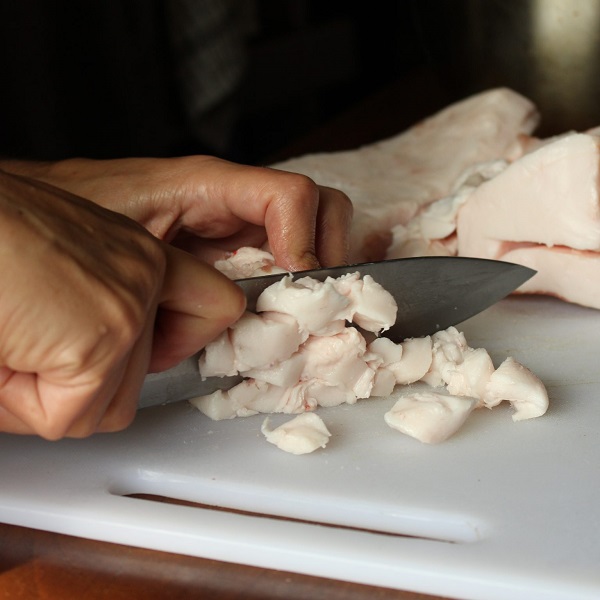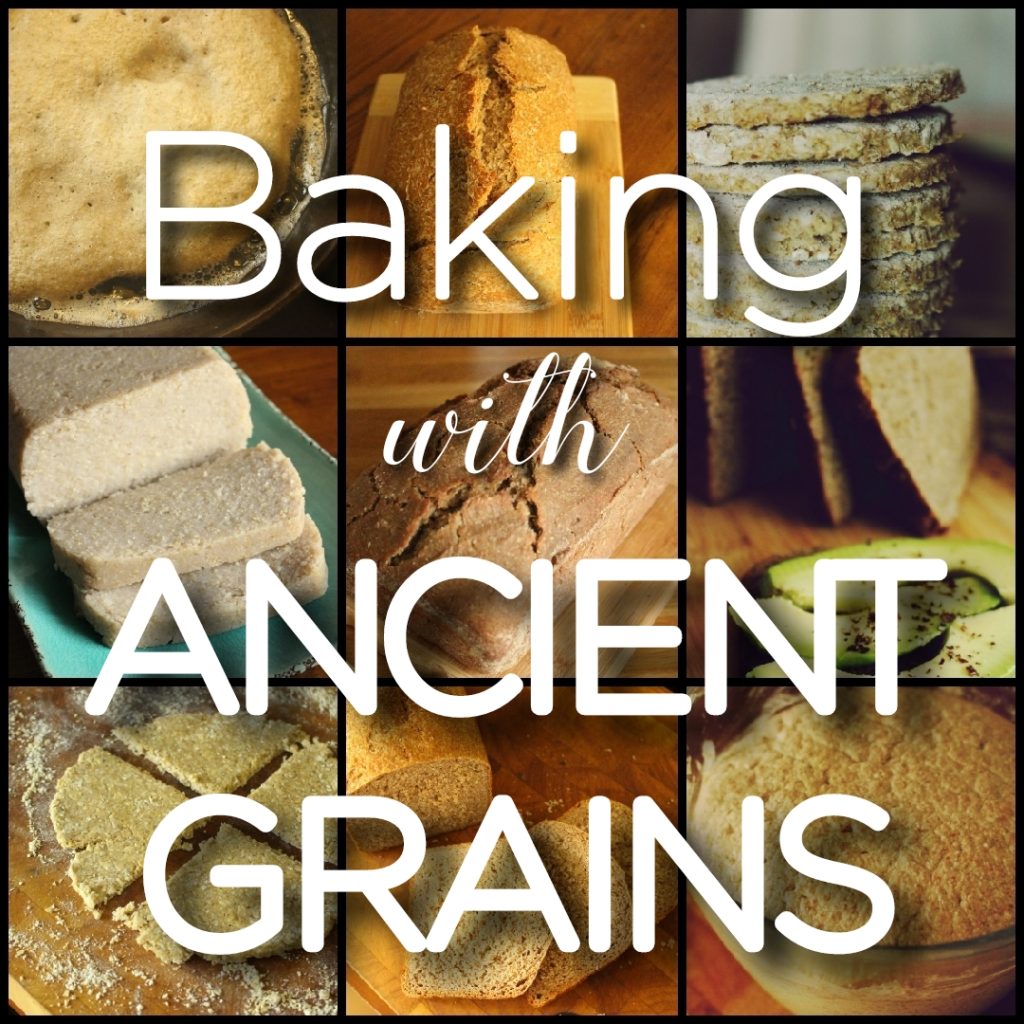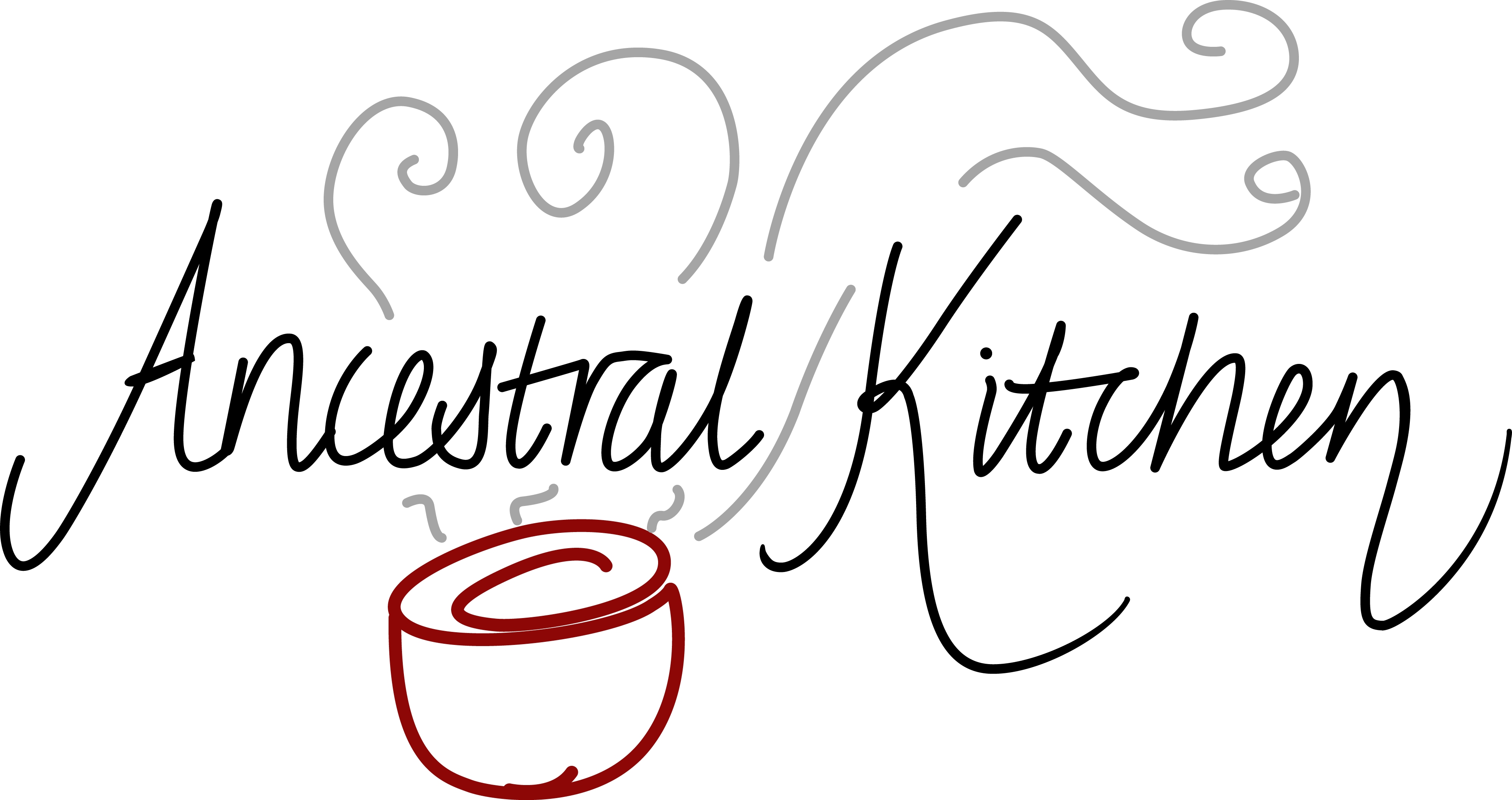
One of the common criticisms I hear of ancestral eating is that it romanticises the past.
I am often chastised for idealising the food lives of our ancestors. People tell me that I’m wearing rose-tinted glasses, continuing with phrases such as, “these people were living in grinding poverty, struggling to find enough food to survive. Why would we want to go back to that?”
To which I respond, “I don’t want to go back to the past.”
Because, yes, I agree. Throughout history, people have lived with incredible shortage; life literally depending on whether food could be found that day. And even when our ancestors had enough food (which throughout the centuries they often did) they oriented their life around the getting and preparation of it, often working their bodies incredibly hard.
For those of us affluent and in the West, the opposite is true – we have an abundance of food and many time-saving devices that allow us to prepare meals using far fewer resources.

So, though I love spending time in my kitchen, I wouldn’t want to go back to the past and have us all dependent on the success of local harvests, working all day, every day to put meals on the table.
Despite not wanting to turn the clock back, I’ve dedicated the last 15 years of my life to learning about, practising and teaching the value of food as it used to be, before industrialisation. And the title that I have chosen for my work is Ancestral Kitchen – the word ‘ancestral’ in that phrase very much centering this way of life in the past.
So if I don’t want to turn the clock back, why am I promoting ancestral foodways?
Post-industrialised Food Systems
Since industrialisation, our food systems have been based around profit. Industry – created for and focused on profit – required a workforce who, when moved from their land into cities, needed to be fed. Our modern food world is shaped on this model and the companies that make our food do so because they can make a profit.
The replacement of local, home-based food systems with profit-based food has disconnected us from what happens to the soil and the environment when we grow food. It has polluted our world with the byproducts of industrial processes, incredible amounts of packaging and global transportation. And, on top of this, it has made us more ill than we’ve ever been.
We’ve dug up fossil fuels, made fertilisers and ploughed them into the soil. Our oceans are overflowing with plastic. Food-related diseases are skyrocketing. All for profit.
In addition, industrialisation of food has allowed us view what we eat as a dislocated ‘thing’, without tying it to the resources that are needed to make it. With this, it’s easy for us to ignore the damage that we are doing to ourselves, our soil, our planet and our fellow human beings.
Ancestral Foodways
The food systems of our ancestors were not connected to profit. They were concerned with providing as much nutrition as possible from what grew nearby, whilst also ensuring that the local environment was well looked after.
Our ancestors knew how to feed themselves in a sustainable way. Without big machinery, transportation and chemicals they had to eat what was around them, learn how eek out every bit of of nutrition from it and care for the soil so it would continue to sustain them and their families. Their foodways centred on respecting everything around them.

When looking at the problems our world is facing, the foodways of our ancestors make sense.
Why wouldn’t we want to give our bodies the best nutrition possible, enabling us to thrive?
Looking after the soil so that it can grow food for future generations is a no-brainer, surely?
Decreasing transportation, plastic and industrial pollution is something the sane are clamouring for. Why wouldn’t we do it?
And thanks to many of the things our modern world has given us we can do this without the hardship our ancestors took on; we can adopt an ancestral eating philosophy, without needing to spend all of our time, from dawn till dusk, focused on providing food.
How can we bring ancestral eating into a modern kitchens?
In modern kitchens, where we may no longer be growing or raising our foods we can be inspired by the ways of life that permeated our ancestors’ food systems and in doing so benefit ourselves, our families, our local economies, our soil and our environment.
- We can source our foods from local farmers.
- We can use the process of fermentation to increase nutrition and provide much-needed probiotics.
- We can eat all of the animal and diversify our diets, reducing waste.
- We can choose organic food because we realise the importance of maintaining soil health.

My article, ‘What does Eating Ancestrally Mean?’ explains the tenets of ancestral eating.
My article 5 Simple Ways to Start Cooking Ancestrally gives you practical and simple ways to begin.
And you can listen to my interview with Chris Smaje to understand why being inspired by pre-industrial farming systems is the key to providing food for our society going forward.
Sourdough bread as an example of ancestral wisdom
Let me give you an example of something I make regularly in my kitchen which directly draws from the wisdom of ancestral eating: Sourdough bread.
When I spend time preparing bread, I know that I’m standing in shoes of the generations of women who worked at breadmaking for many hours a week.

But I’m not doing it for the sake of recreating an long-lost domestic idyll. I’m making local-flour loaves because I know it to be the healthiest form of bread that I can provide.
By healthy, I mean nutritionally healthy – it’s fresh flour and has been rendered digestible by the sourdough process. I mean healthy for my community – the flour came from a local farmer. I mean healthy for my sanity – I’m better off prepping bread than I am scrolling or watching Netflix. I mean healthy for my environment – no pesticides were used in growing the grain, it wasn’t shipped from another country and it doesn’t need plastic packaging.
Taking Our Inspiration from the Past
Ancestral eating does not romanticise the past. Through learning how our ancestors lived and ate, we become even more aware just how difficult it was for many of them. And yet we know that they were incredibly resourceful at crafting food and farming techniques that support health and environment, and that industrialisation, with its focus on profit, has taken that away from us.
As an ancestral cook, I am inspired every day by the wisdom of the communities that came before me. And I believe that the more we can connect with that, the better outcomes there will be for us all individually, communally and societally.
If you’re cooking ancestrally and would benefit from the support of a community of like-minds, check out the Ancestral Kitchen Podcast community here.

Bring ancient grain baking into your kitchen!
Download my free 30-page guide with five healthy and tasty 100% ancient grains recipes.

